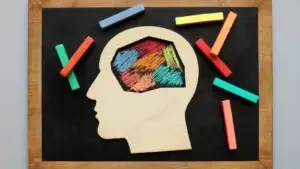Whether you are currently in therapy, have friends or family who go to therapy, you may have her the term EMDR Therapy. EMDR stands for eye movement and desensitization reprocessing therapy. It can seem like a mouthful, but it can be extremely successful method in working through trauma.
What is Trauma?
Trauma comes in many forms, but all trauma, regardless of the situation, action, or scenario, can cause deeply rooted long-term problems. No one wants to revisit a part of their past that makes them uncomfortable, fearful, or even worse. However, even terrible experiences need to be processed in order for healing to occur. Trauma will never go away until it is faced head on. This may take time, and that’s ok. Working with a trusted therapist is the first step in reaching that point.
What is EMDR?
As previously mentioned EMDR is a specialized technique that is used by therapists to treat trauma. There are several different techniques that therapists can use depending on the individual and what they are working with. What exactly is EMDR (eye movement and desensitization reprocessing)? It is a technique that can use light, sound, or touch to reprocess traumatic memories or experiences.
Why is EMDR Effective in Working Through Trauma?
Individuals seeking therapy for trauma have potentially hidden away this memory for years. It is something they do not want to remember, reflect on, or deeply discuss. This is why talk therapy may not be the best option for those seeking treatment for trauma. The root of EMDR is the feelings associated with this trauma and not graphically detailing the event itself. Even bringing up minor details of the traumatic events are enough to make this treatment effective.

How Does EMDR Work?
EMDR is a way to change how our brains process memories. Traumatic events are overwhelming for the brain to process. These events don’t get filed in our long-term memory as typical memories do. These unprocessed events can cause flashbacks. It can also cause unrelated events to become overwhelming. By utilizing specific movements, it can reduce the intensity of the related emotions. Treatment focuses on bilateral eye movement, sound, or touching. Your therapist may also use a special tool called a TheraTapper. Through this process, it allows these traumatic memories to be processed properly by the brain.
What Types of Trauma are Typically Treated with EMDR Therapy?
- PTSD
- Anxiety
- Grief
- Abuse
- Extreme fear or phobias
- Addiction
EMDR can be a great option for these types of struggles, especially if other forms of therapy have not been effective. Working alongside your therapist, you can decide what you are comfortable with and which treatments will benefit and be effective. EMDRY may have a place in your current treatment plan as your therapist adjusts their techniques to meet your specific needs.
In-person and Virtual EMDR Therapy
Another benefit of EMDR is that it can be very successful in a virtual setting. Online therapy options are becoming more widely available and can be just as effective as in-person sessions. Whether it’s scheduling, finding childcare, or lack of access that is preventing your from attending therapy, virtual sessions make it easier to get the treatment that you need.
If you are struggling with past trauma, talk to your therapist about the treatment options that are right for you. EMDR can be a great tool, and it can be successful in an online environment as well. EMDR can help to heal your brain and properly process the trauma. It will not erase those memories, but it will help to keep them from constantly being in your mind. Our team of therapists at Renewed Wellness Counseling are experienced and trained in EMDR techniques to provide the support you need.








